How to use NotebookLM, Google’s new AI audio generator that lets you make a stunningly real AI podcast without a mic
You won’t believe how good this sounds
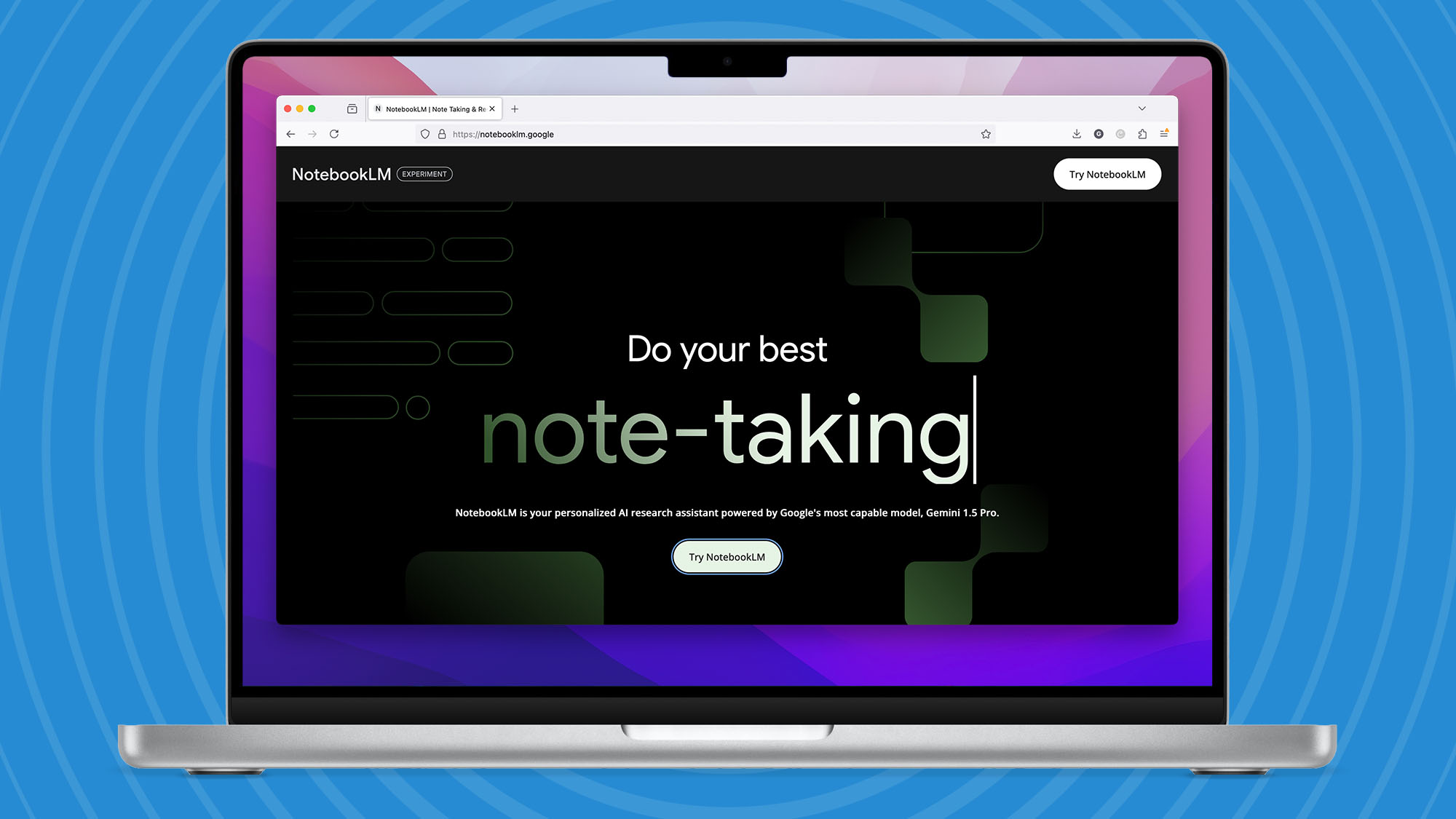
Google recently launched NotebookLM, its AI research assistant that analyzes whatever articles you upload to it and produces an audio file that is a stunningly realistic conversation that sounds just like two well-seasoned podcast hosts discussing your articles. We’re actually slightly blown away, and a little bit scared, by how good it sounds – you really can’t tell that the resulting ‘show’ isn’t a real recording of two people talking! If you don't believe us, have a listen to this audio conversation that is generated from a single blog post, and uploaded to YouTube.
Not only does NotebookLM do a great job of understanding what your article is about, but it can also extrapolate points and branch out into other areas without getting anything wrong or out of context (at least in our tests so far). As with all artificial intelligence, it does come with a disclaimer to say it “may still sometimes give inaccurate responses, so you may want to confirm any facts independently”, but to say we’re impressed with how it has performed so far is an understatement. The best way to understand how NotebookLM works is to have a go yourself, so here we’ll show you how it works.
Creating your podcast
1. Get started
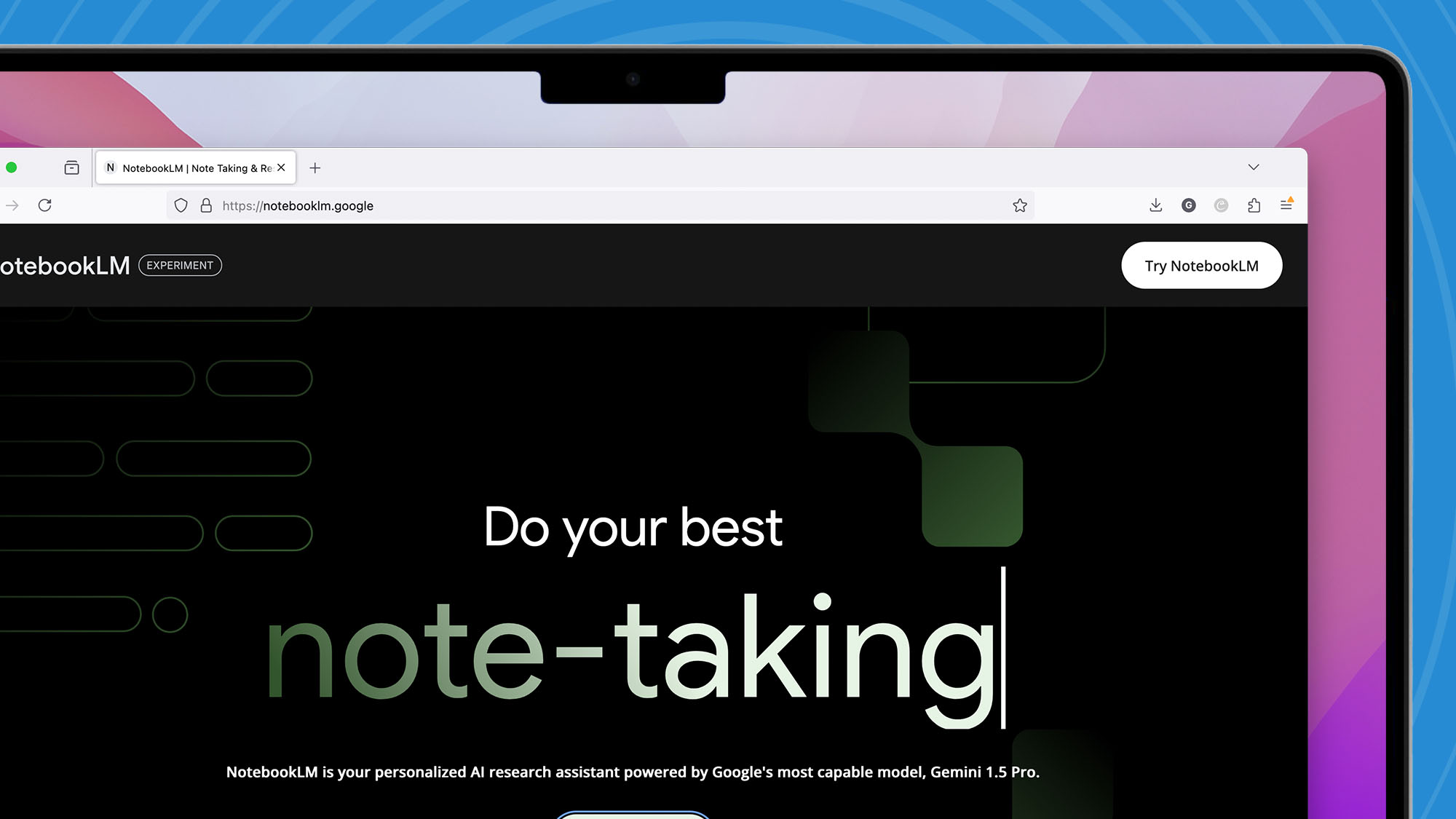
The first step is to head to https://notebooklm.google/. So long as you have a free Google account and are logged in you can use it. To get started just hit the Try NotebookLM button. If it’s your first notebook you’ll be taken straight to the upload screen where you can add sources.
2. Upload sources
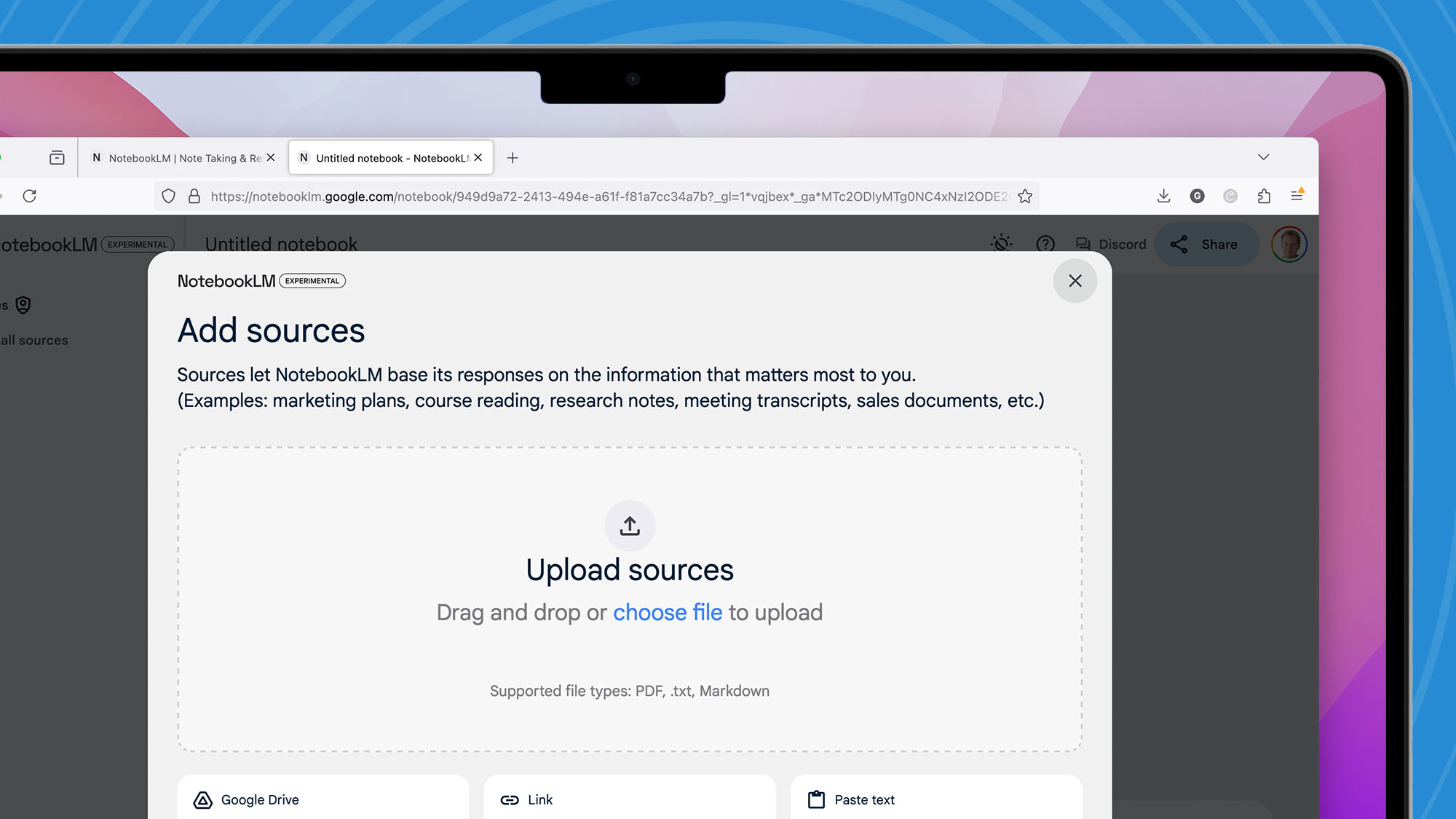
Now you need to add your sources. This is a standard upload screen, where you can choose from your Google Drive at the bottom, a website link, or paste some copied text. Alternatively, drag and drop a PDF or .txt file into the window. Google recently added the ability to use a YouTube video as a source, too.
3. Add more sources
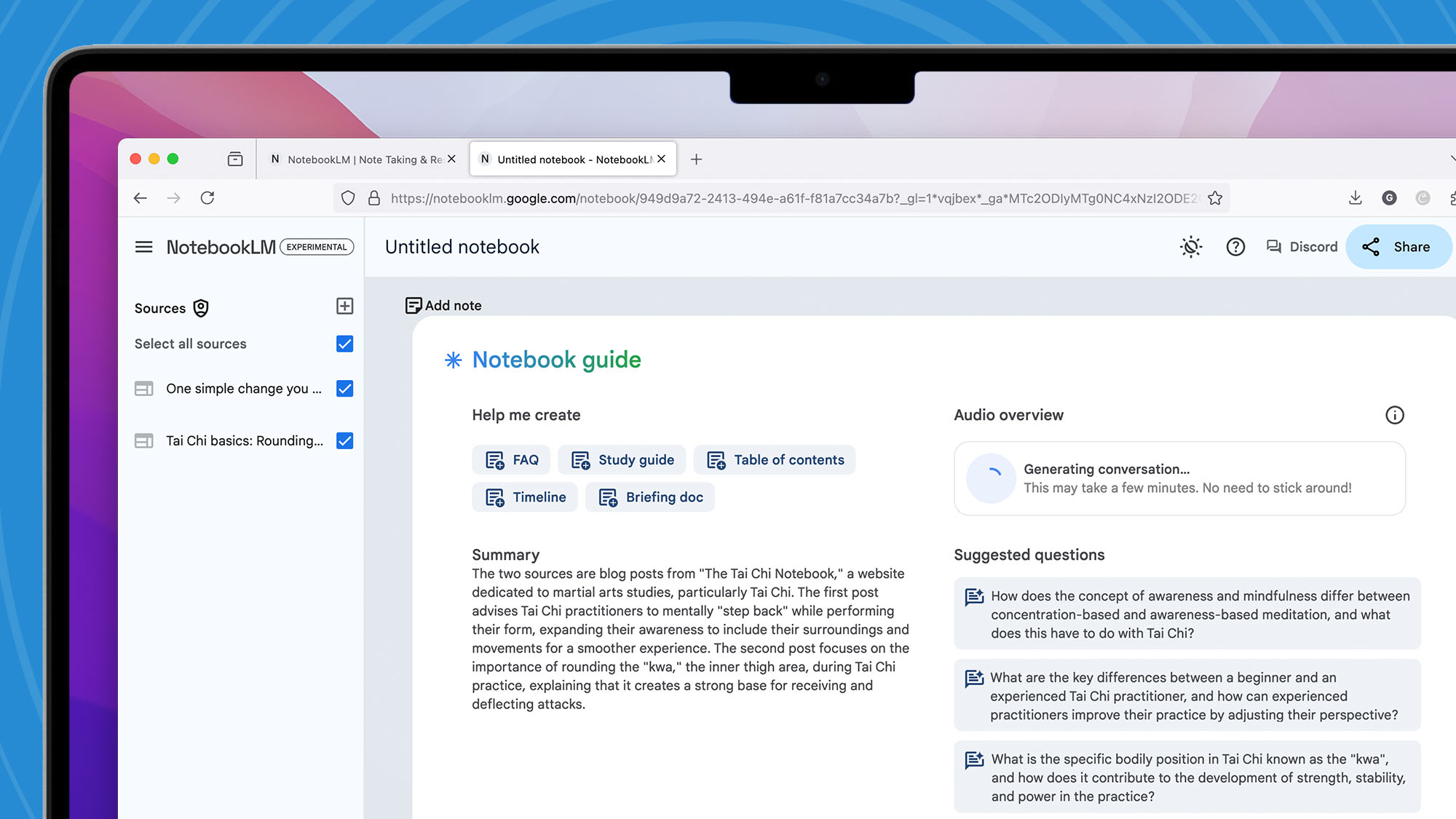
You can add multiple sources, it’s up to you, but the more you add the wider the scope of the resulting conversation. To do so hit the + button in the top left corner. All the sources are listed in the drop-down list on the left. The text summary in the middle window will update every single time you add a new source.
4. Generate audio
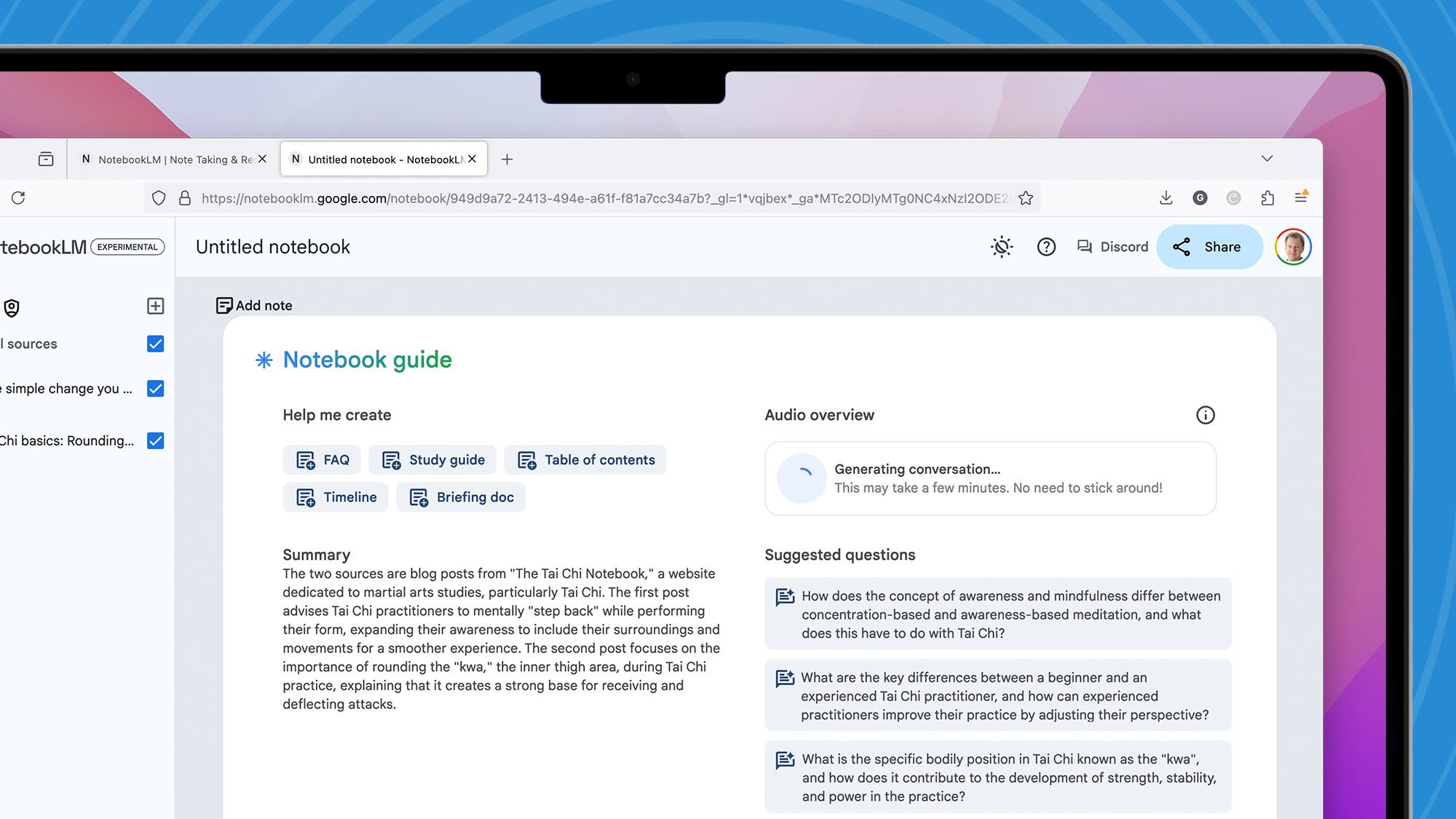
Once you’re happy with the amount of sources you have, just hit the Generate button. Currently, there are no options, so you get two speakers with American accents. It takes NotebookLM a few minutes to generate the audio, so you’ll need to be patient.
5. Have a listen
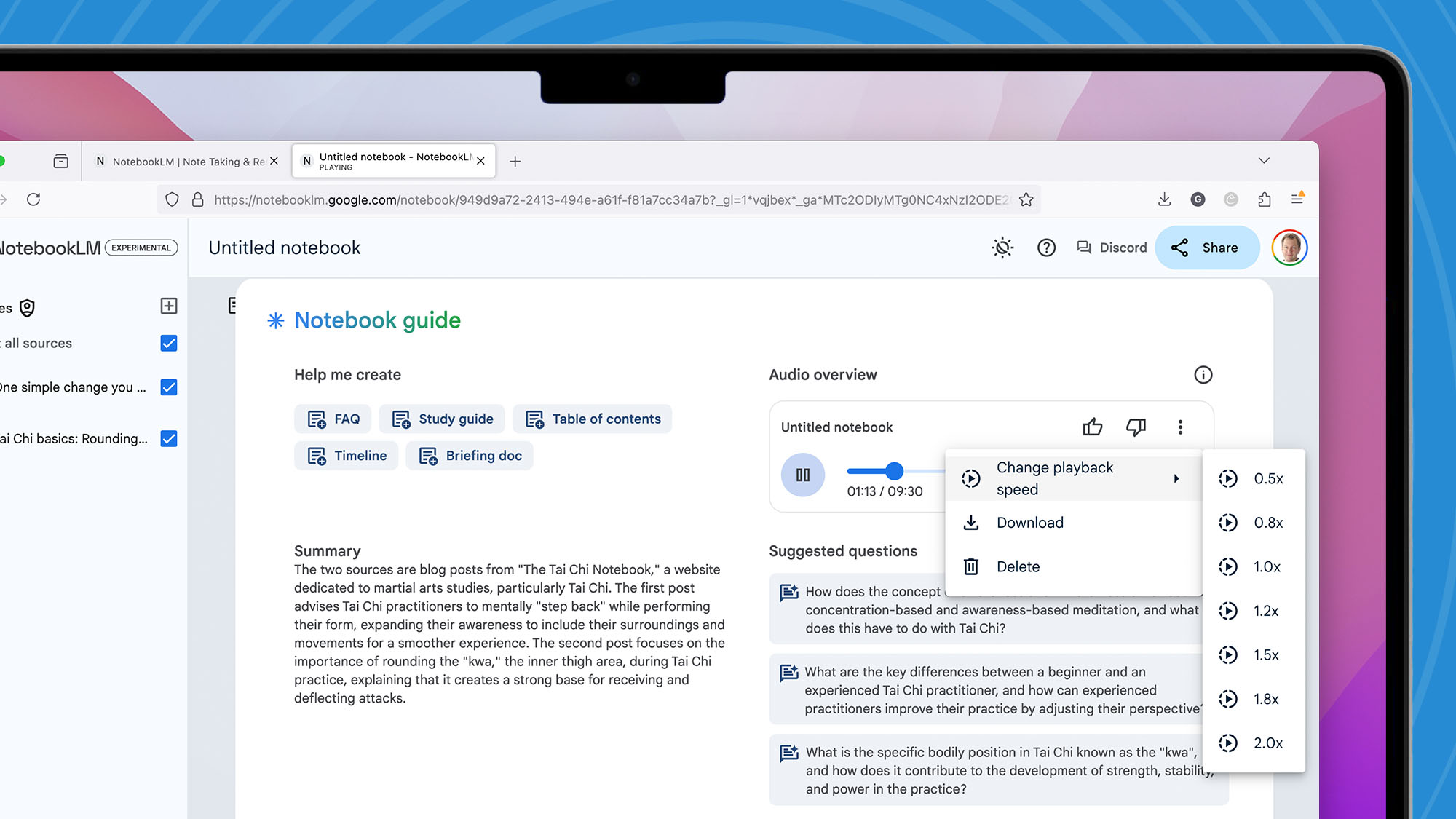
Once it’s done, have a listen. We think you’ll be amazed at how real it sounds! With one blog post NotebookLM produced a 7-ish minute audio file, with two blog posts as a source it became a 9-minute listen. You can change the playback speed if you like, then download the file as a .WAV file.
6. Share with the world
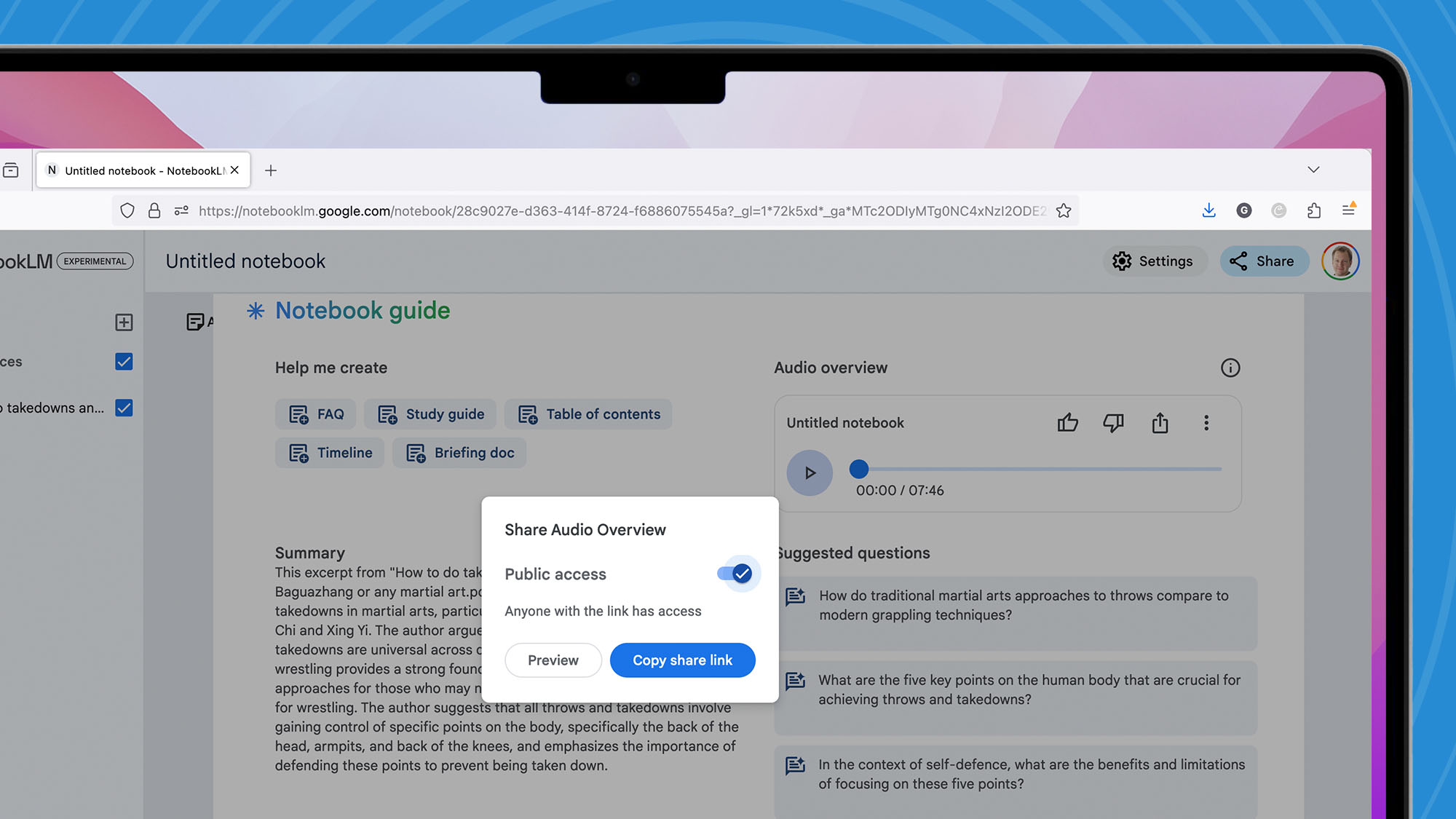
So, you've created your podcast, but how do you get it out there? NotebookLM used to just dump a WAV file on your desktop, but now it gives you the option to share it to the world. Click the Share icon then turn on 'Public access' in the pop-up window that appears. You can then click the blue 'Copy share link' button and share the link with people.
FAQs
Can you change the speakers' voices?
Not at the moment. You currently have a man and a woman discussing your subject with American accents. We’d imagine that in the future more options will be available.
Can you set the length of the conversation?
Again, no, although the more sources you add the longer the conversation gets.
Can I edit the audio or change things?
Get daily insight, inspiration and deals in your inbox
Sign up for breaking news, reviews, opinion, top tech deals, and more.
Currently, no. Obviously, the file NotebookLM produces is just a standard WAV audio file, so you can load it into an audio editor, like Audacity, and do whatever you want to it.
You might also like...

Graham is the Senior Editor for AI at TechRadar. With over 25 years of experience in both online and print journalism, Graham has worked for various market-leading tech brands including Computeractive, PC Pro, iMore, MacFormat, Mac|Life, Maximum PC, and more. He specializes in reporting on everything to do with AI and has appeared on BBC TV shows like BBC One Breakfast and on Radio 4 commenting on the latest trends in tech. Graham has an honors degree in Computer Science and spends his spare time podcasting and blogging.